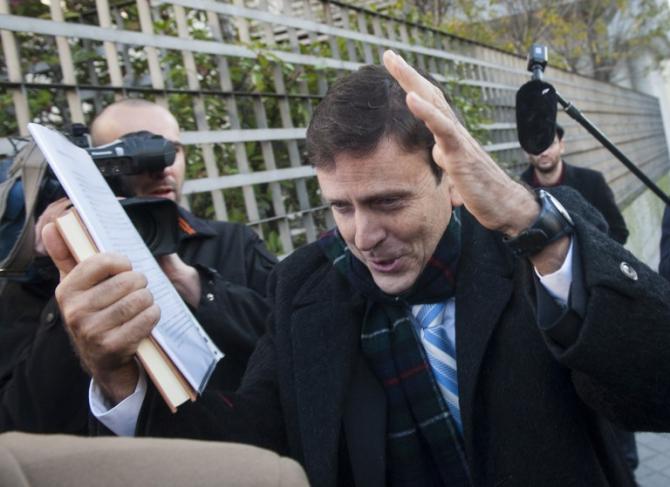Fuentes recognizes 'some top sports names' could be owners of Puerto blood bags
Exonerated doctor questions legitimacy of naming and shaming

Spanish doctor Eufemiano Fuentes has recognised that it is possible that some top names in sport could be identified as the owners of the blood transfusion bags from Operación Puerto should they be publicly confirmed.
In one of his first interviews with the media since he was cleared on Tuesday of all charges in the Puerto anti-doping probe, Fuentes was asked by Spanish radio station COPE if ‘major names’ could appear once the list of the 211 blood bags seized in Puerto was cross-checked with their potential owners via their DNA.
“It could be, it could be,” Fuentes said, before adding, “but I’m not going to give you clues or names.
“If they are going to be found out, it’s a question of waiting to find out.”
Fuentes emphasied that “If there is no crime, and there is none for either myself or the sports people involved” - at least, not according to Spanish public health laws in 2006, which were those applied to Puerto - “then I have to say I am professionally bound [not to comment further].”
Technically the process of naming riders and athletes linked via DNA to at least some of the 211 blood bags seized in Puerto and which are currently sitting in a freezer in an anti-doping lab in Barcelona - as they have been for the last ten years - is possible. But legally, whether the process of ‘naming and shaming’ these sports personalities and whether this constitutes slander given no suspension is now possible after the statute of limitations has passed, has already been raised in Spain - and Fuentes speculated on it again.
When asked if he would invite the anti-doping authorities to name all the sports personalities who could be identified as blood bag owners via DNA, Fuentes said he would not, saying he did not know if such a process was in fact permitted in a democratic state.
The latest race content, interviews, features, reviews and expert buying guides, direct to your inbox!
Other issues are clearer, at least for Fuentes. Whilst recognising that his former activities would now be penalised under Spain’s anti-doping laws if carried out on athletes, he also insisted that his practices had “caused no harm whatsoever to any of my patients, only benefits. I would carry them out on a relative. I have always protected their health.”
Asked if his activities had been simply playing with the athletes' health in order to improve performance, Fuentes said his objective was “to protect their health, which does improve performance despite the excessively high number of events on the schedules of some sports, which are simply there with the objective of creating a greater spectacle.
“Those directing sport like one thing, doctors try to protect athletes' health. My athletes’ lives have never been in any danger.”
Now working, he said, in a health centre as a family doctor, Fuentes added that he was “satisfied with the verdict, I’ve been on trial for ten years and it’s good to know that justice has been done.” He said that he would need time to decide, however, if he will return to sports medicine.
Once the COPE interviewer had completed his questions, Fuentes concluded by offering messages of support to the Olympic and Spanish football squads in this summer’s Rio Games and Euro 2016 competitions. He also - after pointing out that the Puerto verdict had, coincidentally, come out on World Blood Donor Day - took the opportunity to encourage Spaniards “to donate blood. It’s risk-free, innocent and can save lives.”
Alasdair Fotheringham has been reporting on cycling since 1991. He has covered every Tour de France since 1992 bar one, as well as numerous other bike races of all shapes and sizes, ranging from the Olympic Games in 2008 to the now sadly defunct Subida a Urkiola hill climb in Spain. As well as working for Cyclingnews, he has also written for The Independent, The Guardian, ProCycling, The Express and Reuters.
